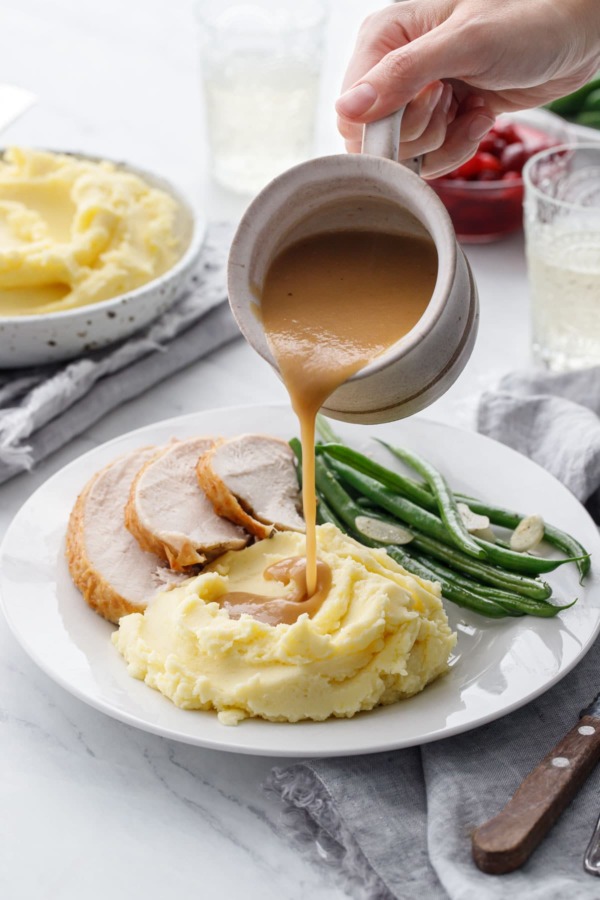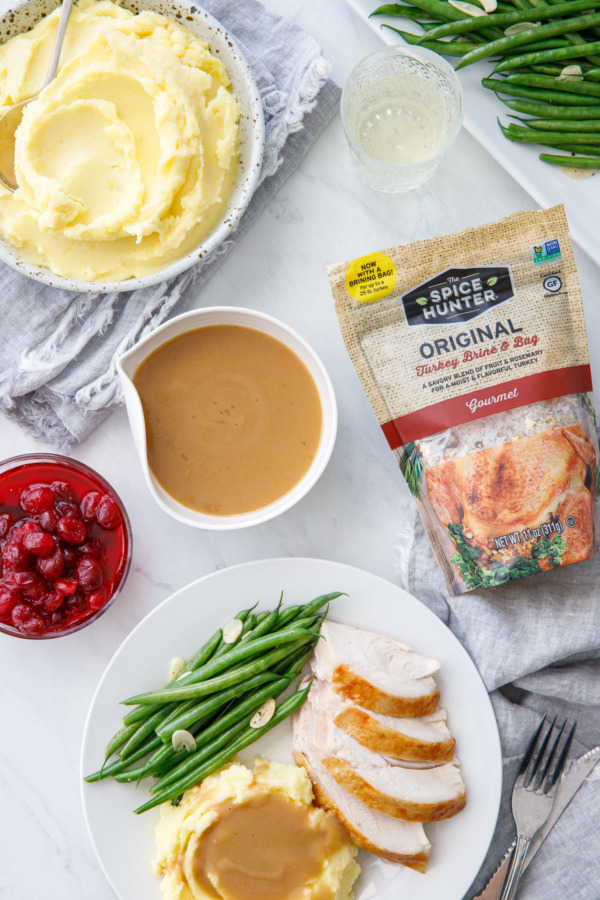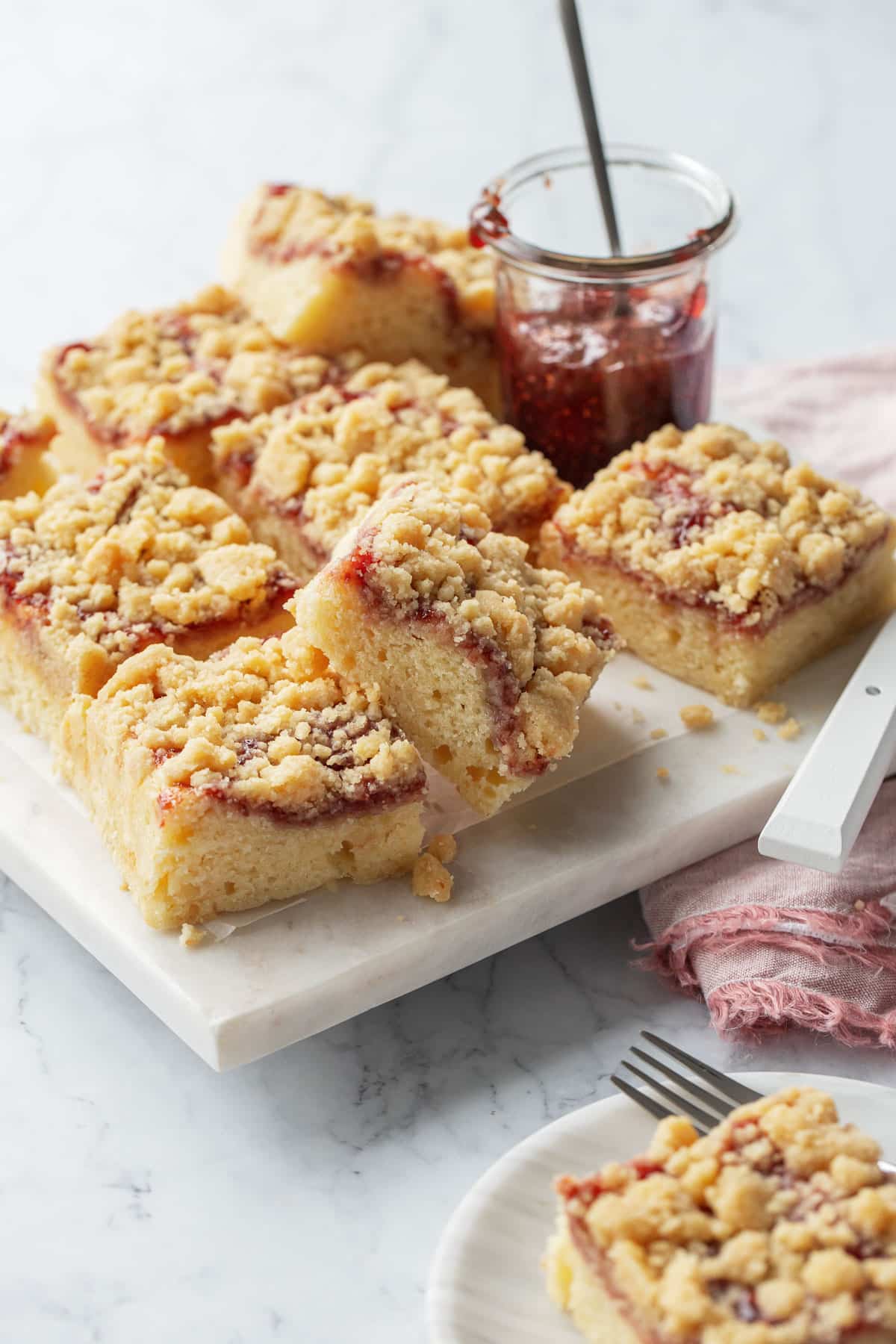I love brined turkeys—they are always incredibly moist, flavorful and juicy. But most gravy recipes out there use the pan drippings, which in the case of brined turkeys can make your gravy unbearably salty if you’re not careful.
That doesn’t mean you have to choose between a moist and juicy bird or a robustly flavorful gravy. By following our helpful tips and tricks for making perfect gravy with a brined turkey, you can have the best of both worlds!

This post is sponsored by The Spice Hunter and includes tracking links. For more information about tracking links and how to opt out, please visit All About Do Not Track prior to clicking any links found in this post.
As much as we love brined turkeys, they do have one unfortunate side effect: overly salty gravy. Since much of the salt from the brine is absorbed into the turkey (this is what makes brined turkeys so moist and flavorful), some of that salt water, along with the fat and juices from the turkey, drips into the bottom of the roasting pan as the turkey bakes. Most traditional gravy recipes use these pan drippings as a base, which can make the resulting gravy undesirably salty.
Our secret to perfect homemade gravy from a brined turkey is threefold: homemade turkey stock, a golden brown roux, and strategic use of the turkey drippings.
So rather than start with a panful of drippings like most recipes do, start with your turkey stock (this will make up the bulk of your gravy), then add your drippings, a little at a time, until the gravy is suitable to your tastes. The roux is what thickens the gravy into a luxurious, silky smooth blanket to smother your Thanksgiving plate.

The actual saltiness (as well as the total quantity) of your turkey drippings will vary quite a bit depending on the size and fattiness of your turkey, your specific brine recipe, as well as your cooking method.
We used The Spice Hunter’s Original Turkey Brine, which simplifies the brining process immensely (just dissolve the brine mixture in water, chill, then cover your turkey in the included bag—so easy!)
We then roasted our turkey with a little bit of water in the roasting pan to keep the drippings from burning (keep an eye on it as it bakes and add more water as needed). Using more water means you’ll have more drippings, but they won’t be quite as concentrated.
from Love and Olive Oil https://ift.tt/2oZC6eE





0 comments:
Post a Comment